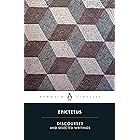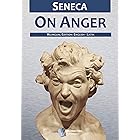| Kindle Price: | $0.99 |
| Sold by: | Amazon.com Services LLC |
Your Memberships & Subscriptions

Download the free Kindle app and start reading Kindle books instantly on your smartphone, tablet, or computer - no Kindle device required.
Read instantly on your browser with Kindle for Web.
Using your mobile phone camera - scan the code below and download the Kindle app.

OK
On the Shortness of Life Kindle Edition
| Customers reported quality issues in this eBook. This eBook has: Typos. The publisher has been notified to correct these issues. Quality issues reported |
The same title is also given to a different letter, number 49 in the Letters to Lucilius.
- LanguageEnglish
- Publication dateSeptember 20, 2017
- File size1039 KB
Customers who bought this item also bought
Editorial Reviews
About the Author
Excerpt. © Reprinted by permission. All rights reserved.
Most human beings, Paulinus,* complain about the meanness of nature, because we are born for a brief span of life, and because this spell of time that has been given to us rushes by so swiftly and rapidly that with very few exceptions life ceases for the rest of us just when we are getting ready for it. Nor is it just the man in the street and the unthinking mass of people who groan over this - as they see it - universal evil: the same feeling lies behind complaints from even distinguished men. Hence the dictum of the greatest of doctors:† 'Life is short, art is long.' Hence too the grievance, most improper to a wise man, which Aristotle expressed when he was taking nature to task for indulging animals with such long existences that they can live through five or ten human lifetimes, while a far shorter limit is set for men who are born to a great and extensive destiny. It is not that we have a short time to live, but that we waste a lot of it. Life is long enough, and a sufficiently generous amount has been given to us for the highest achievements if it were all well invested.
* A friend of Seneca’s.
† Hippocrates
Product details
- ASIN : B075THP2VL
- Publisher : LRP; 1st edition (September 20, 2017)
- Publication date : September 20, 2017
- Language : English
- File size : 1039 KB
- Simultaneous device usage : Unlimited
- Text-to-Speech : Enabled
- Screen Reader : Supported
- Enhanced typesetting : Enabled
- X-Ray : Enabled
- Word Wise : Enabled
- Sticky notes : On Kindle Scribe
- Print length : 31 pages
- Best Sellers Rank: #59,899 in Kindle Store (See Top 100 in Kindle Store)
- #3 in 45-Minute Self-Help Short Reads
- #120 in Happiness
- #161 in Motivational Self-Help (Kindle Store)
- Customer Reviews:
About the author

Discover more of the author’s books, see similar authors, read author blogs and more
Customer reviews
Customer Reviews, including Product Star Ratings help customers to learn more about the product and decide whether it is the right product for them.
To calculate the overall star rating and percentage breakdown by star, we don’t use a simple average. Instead, our system considers things like how recent a review is and if the reviewer bought the item on Amazon. It also analyzed reviews to verify trustworthiness.
Learn more how customers reviews work on AmazonReviews with images
-
Top reviews
Top reviews from the United States
There was a problem filtering reviews right now. Please try again later.
I also liked the quote from page 27 when he says "we lose the day in waiting for the night and the night in fearing for the dawn." He is saying we are waiting for the perfect moment, or the moment of joy and pleasure. But in waiting we lose all the time preceding that moment. And as soon as the moment comes we fear it's end. It's a constant vicious cycle and we can never win.
Another great quote is on page 5 when he says "the greatest obstacle to living is expectancy, which hangs upon tomorrow and loses today. Very powerful insight. It's like we're waiting and waiting and hoping whatever we want comes our way, but in doing that, we lose the time at hand. Plus, waiting and hoping something works out is putting your money on the future which is uncertain. That's why expecting something to happen is not enough, because you're betting on luck instead of making it happen through the action you take. As Abraham Lincoln said, "the best way to predict the future is to create it."
There are many great quotes but the last one I will share is on page 56 when he says "No man is despised by another unless he is first despised by himself. An object and debased mind is susceptible to such insult; but if a man stirs himself to face the worst of disasters and defeats the evils which overwhelm others, then he wears those very sorrows like a sacred badge. For we are naturally disposed to admire more than anything else the man who shows fortitude in adversity." I think what he's basically saying is that you need to love yourself before anyone else can love you. People will show you the amount of love in proportion to the amount of love you give yourself. The two quotes that come to mind that relate are "those who stand for nothing will fall for anything" and "if there is no enemy within, the enemy outside can do no harm." If you conquer the worst of your fears, the same fears that destroys others, then you will take pride in the very thing that you feared, and people will admire and respect that you had the guts to face it, instead of chastising and scorning you. So you should feel no shame in your problems for they are the very thing that will earn you the admiration of others if you are able to conquer them, but more importantly, it will strengthen you and help you grow as a person. His other quote that piggy backs off that is "If a great man falls and remains great as he lies, people no more despise him than they stamp on a fallen temple, which the devout still warship as much as when it was standing." In other words, it's not about what happens to you or how you fall, but about how your react and carry yourself, and your character, that will resonate with others. Anyway these are just some examples of the bits of wisdom Seneca offers. Overall, there is some timeless wisdom in his essay and I believe it is worth your time to read it.
Philosophy is supposed to, more than anything else, teach us how to live better lives. On the Shortness of Life is my favorite introductory material to figuring out how to do just that.
The core takeaway is simple. Be mindful of and purposeful with your time.
Time is our most precious commodity and it is too easy to lose sight of it while we go through our daily routines of work, family, and social life plus all the little distractions that tend to fill up the day up. We become preoccupied with interpersonal drama and day-to-day stresses that our lives quickly go by and before you know it we end up old men with much regret.
Seneca's suggested fixes are 1. Awareness and 2. Acceptance.
We need to be aware of how we spend our time and ideally anticipate how best to spend it in the present and future. Again, most of us spend it unwisely as if it's more plentiful than it actually is.
Acceptance is key to how we think about death. We tend to avoid confronting the fact that we're going to die, which builds up a lot of anxiety about it. Seneca discusses how learning how to die is just as important as learning how to live. We die well by accepting the fact we're going to die and not hiding from it. This will naturally lead to a great appreciation for the time we have which will lead to taking more purposefully action instead of filling up the day with too much idle preoccupation.
There's plenty more to think through in the book. I highly recommend picking it up. I can't think of a person who could not benefit from reading it. I'll leave you with a few of my favorite quotes from it.
"Life is short, art is long."
"But you never deign to look at yourself or listen to yourself. So you have no reason to claim credit from anyone for those attentions, since you showed them not because you wanted someone else's company but because you could not bear your own."
"But learning how to live takes a whole life, and, which may surprise you more, it takes a whole life to learn how to die."
"Just as it is no use pouring any amount of liquid into a container without a bottom to catch and hold it, so it does not matter how much time we are given if there is nowhere for it to settle;"
Top reviews from other countries
The advice contained in it totally transcends time. It is a relevant today as it was when it was written in 49AD, possibly more so!
For anyone not used to the language of such old writings, the text may seem a bit confusing in places but it is well worth persevering with.
Most of it is very easily understood and, I found, a bit of a wake up call regarding what we do with our very limited time on earth.


















